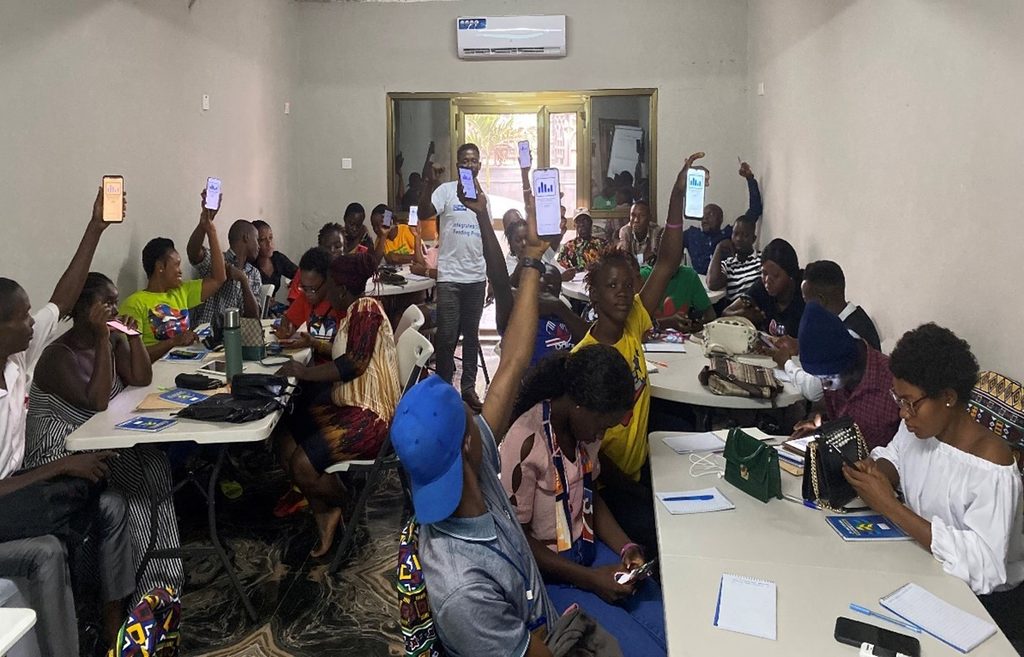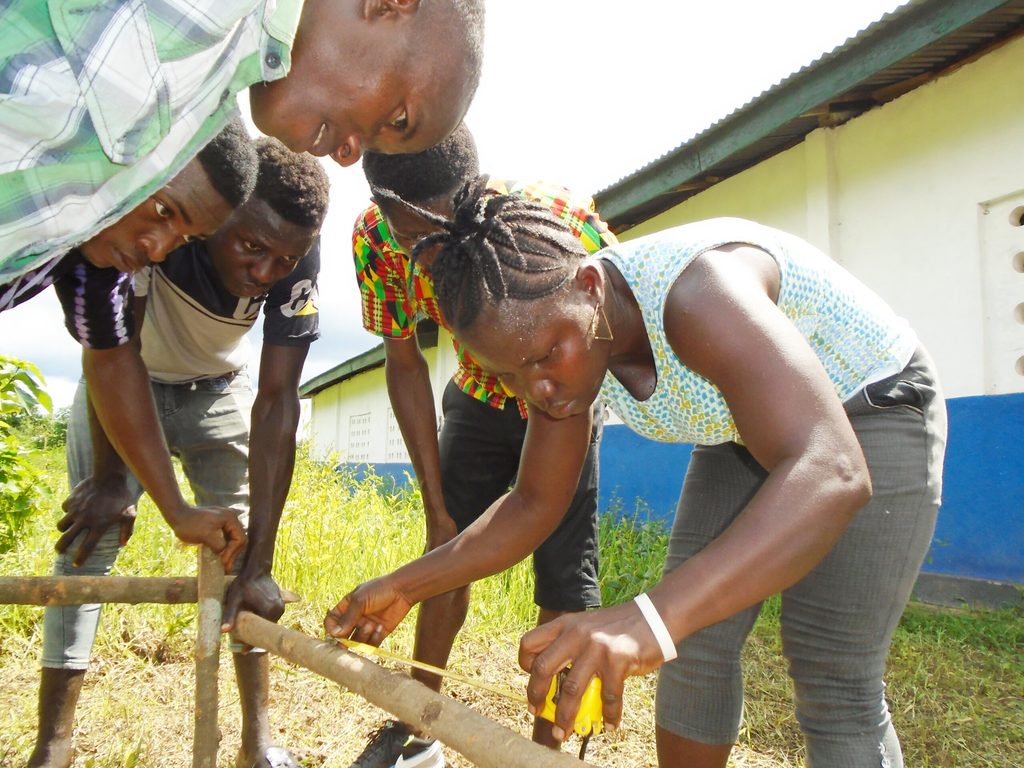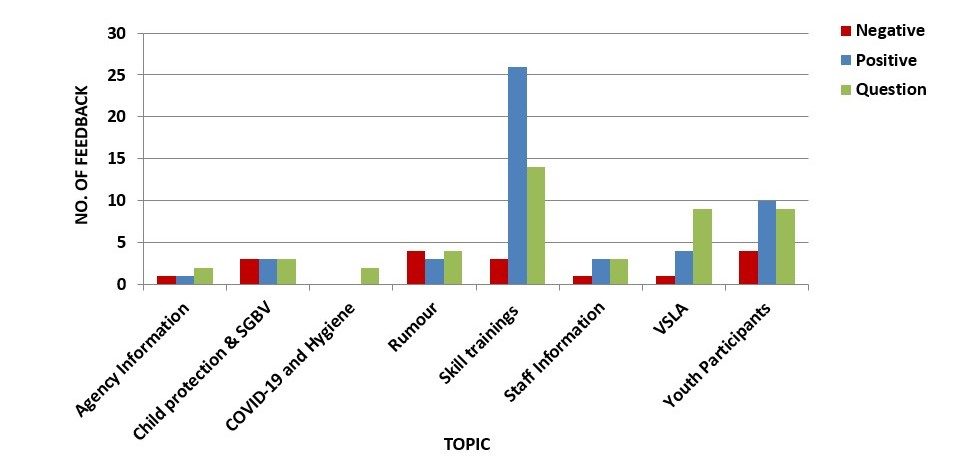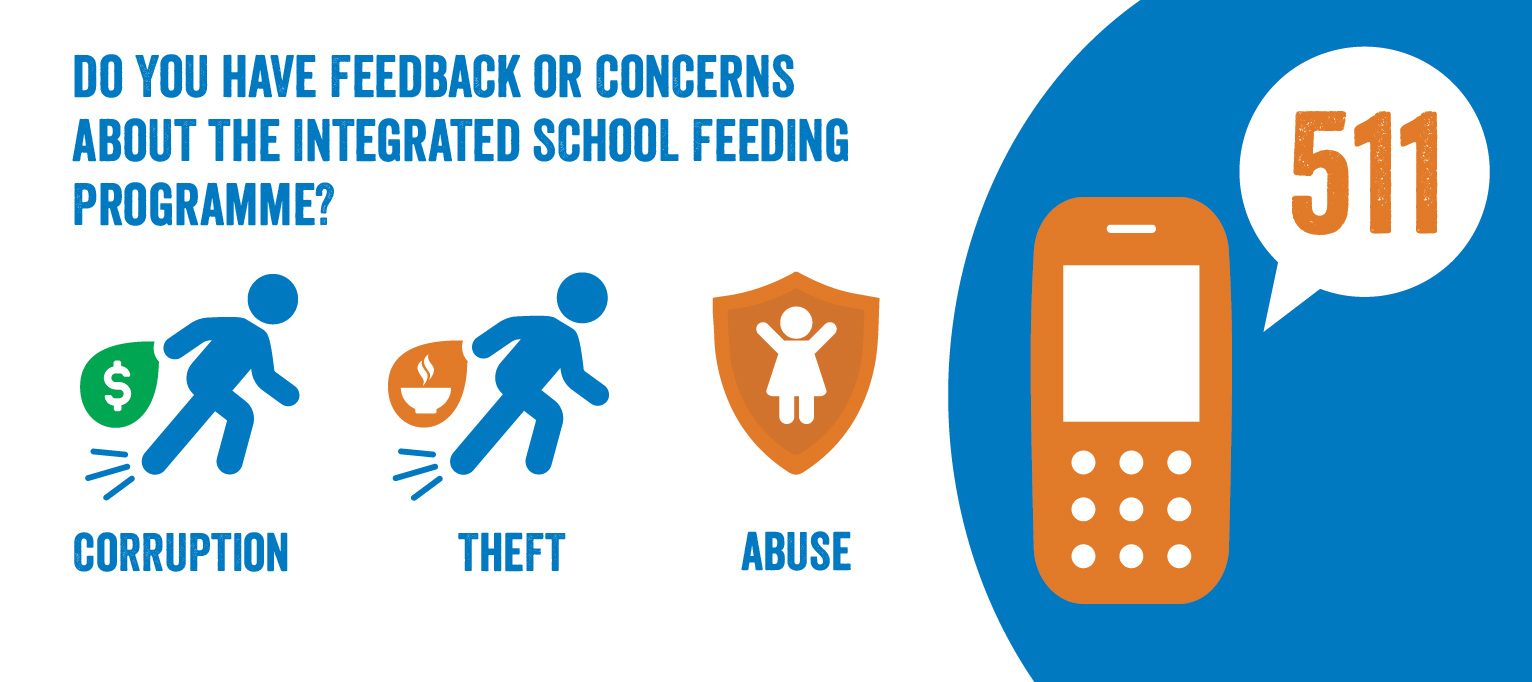From school leavers to star teachers
Eunice, Kumba, and 200 other young women have been catching up on the learning they missed and have become certified as schoolteachers with real-life classro…
Plan International Sierra Leone has adopted an innovative and youth-led feedback mechanism. Using the Telerivet software, data from affected populations is collected and their feedback received.
This digital system addresses communication challenges and creates a 2-way feedback channel. Telerivet works across various channels, including SMS, chat apps, polls, voice response, airtime transfer, mobile rewards, and integration with local messaging providers. The use of SMS channels is particularly beneficial for our projects as it allows communication over long distances, making it effective even in remote areas with limited or no internet access.
This technology ensures that the project can reach communities that might otherwise be difficult to connect with. This feedback mechanism is rolled out across a number of projects including Unilever-funded Hygiene and Behaviour Change Coalition, the Youth Social Economic Empowerment project, Safer Schools for Girls project and the Integrated School Feeding Programme.
One of the key features of humanitarian and development accountability is the deliberate effort to listen and respond to complaints and feedback raised by project participants and others living in the same area about the quality of services delivered by aid agencies and staff behaviour (including allegations of corruption, misconduct, sexual abuse and exploitation).
Agencies who have implemented mechanisms to receive and respond to complaints have reported: early identification of programmatic problems, detection of fraud, better staff retention, and saving of money, among other impacts.
Ultimately strengthening accountability and approaches to complaints handling as part of this, is geared towards improving the quality, relevance and effectiveness of programmes.
To make this system youth-centered, we have established a team of information focal points (IFPs) within communities. These young people are hired and trained as data collectors. Equipped with basic mobile phones capable of sending SMS messages, they play a crucial role in gathering feedback and information from the project communities. By using Telerivet and engaging young people as IFPs, we create a trusted and safe space where community members can share their thoughts, concerns, and suggestions. This feedback is vital for us to continuously improve our projects and ensure that they meet the needs of the community.

When feedback or complaints are reported through Telerivet, the individual will be informed about the process and time frame for handling their submission. After being registered into a tracking sheet the information will be forwarded to the relevant project coordinator. Any feedback is anonymous and will be categorised and processed based on the level of sensitivity. The majority of complaints are missing, or bad quality of items or issues in service delivery. Here a response is provided within 10 working days. However, for sensitive topics such as protection issues, gender-based violence or breach of code of conduct, an initial response is sent within 48 hours.
Telerivet was used to gather the voices and feedback of young people participating in the Youth Social Economic Empowerment project. Our goal with this project is to help young people make secure and fulfilling choices for their livelihoods, develop leadership skills, and increase their understanding of gender issues as they transition into adulthood.
Teaching young people vocational training skills as well as financial literacy, entrepreneurship and gender equality.

Thanks to the use of Telerivet, we have received a total of 113 submissions covering 8 different topics. The feedback we received includes both positive and negative comments, as well as questions from the participants. It’s especially encouraging to see that many participants provided positive feedback and had questions about the skills training they received.

We are grateful for the engagement and participation of young people in the project. Their feedback is invaluable to us as we continue to improve and refine our programmes to better meet their needs.
